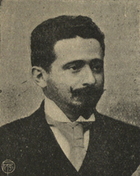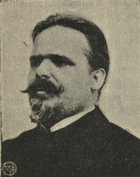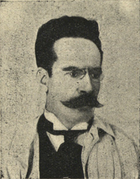| |||||||||||||||||||||||||||||||||||||||||||||||
| Turnout | 59.9% ( | ||||||||||||||||||||||||||||||||||||||||||||||
|---|---|---|---|---|---|---|---|---|---|---|---|---|---|---|---|---|---|---|---|---|---|---|---|---|---|---|---|---|---|---|---|---|---|---|---|---|---|---|---|---|---|---|---|---|---|---|---|
| |||||||||||||||||||||||||||||||||||||||||||||||
 Most voted-for party by municipality | |||||||||||||||||||||||||||||||||||||||||||||||
| |||||||||||||||||||||||||||||||||||||||||||||||
 |
|---|
| Constitution |
Parliamentary elections were held in Portugal on 13 June 1915. [1] The result was a victory for the Democratic Party, which won 106 of the 163 seats in the Chamber of Deputies and 45 of the 69 seats in the Senate. [2]





